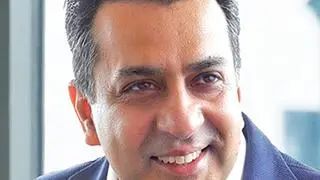The Singapore Government announced last week that a Cyber Security Research Centre would be set up to protect the systems being put in place to turn Singapore into a smart nation. The Smart Nation Platform will be developed in stages, with the first phase focusing on connectivity and sensor aspects expected to be available by 2015.
The country’s Infocomm Development Authority (IDA) plans to install up to 1,000 sensors across Singapore by the end of next year.
Integral to various Government projects, the sensors will also enable increased surveillance in certain areas and better monitor the risk of floods in the Singapore River, which has earlier faced frequent flooding during high tides. The sensor system is expected to lead to substantial savings across departments as the infrastructure cost is to be shared by various agencies.
This kind of inter-agency collaboration and synergy exemplify what KP Unnikrishnan, Marketing Director (Asia-Pacific and Japan), Palo Alto Networks, calls the Singapore Government’s 360-degree approach to excellence.
When the Government builds a vision, he said, the people are consulted and taken on board. Continuous conversations take place between planners, several agencies and citizens, whose feedback is incorporated into the final policy framework. Thus it becomes easier for the people to align their work ethic and personal attitudes to the Government’s vision.
Role of AnalyticsIn an informal meeting with media persons from India, Unnikrishnan said Singapore’s smart nation initiative will complement the city-state’s physical infrastructure by boosting soft power, like creating standards for Internet of Things@Home.
Big data and analytics are expected to play a major role in improving day-to-day systems and facilities. These platforms will serve as a base on which companies and Government agencies can examine new ways to collect and interpret data to better serve the people, with a special focus on senior citizens, healthcare, seamless transportation solutions and security.
Where senior care is concerned, this could go beyond the traditional concept of welfare to reminding the elderly living alone when they need to take their medication or on which day their next health check is due.
Apart from enhancing connectivity and quality of life, the initiative could also build talent in areas such as games science. The country is working on its next 10-year master plan, with a focus on “developing smart communities driven by intelligence, integration, and innovation,” according to its Intelligent Nation Masterplan (iN2015).
Asked if, given the recent focus on smart cities, India can replicate the Singapore model, Unnikrishnan said the island-nation’s success hinges on the absence of corruption, complete transparency and a high degree of efficiency.
In India too, if there is a strong blueprint and adequate funding, the people are aligned to the larger mission and, above all, if there is the political will and transparency, there’s no reason why people-oriented initiatives cannot succeed, he said.
The writer was in Singapore at the invitation of the Singapore Ministry of Communications and Information.








Comments
Comments have to be in English, and in full sentences. They cannot be abusive or personal. Please abide by our community guidelines for posting your comments.
We have migrated to a new commenting platform. If you are already a registered user of TheHindu Businessline and logged in, you may continue to engage with our articles. If you do not have an account please register and login to post comments. Users can access their older comments by logging into their accounts on Vuukle.